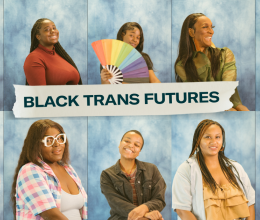
Many people use a driver’s license or other ID without giving it much thought. We carry it with us when we drive and show it if we get pulled over. We use it to get into a bar, board an airplane, or open a bank account. We use it to rent a car, pick up prescriptions, buy beer, claim a senior citizen discount, or check into a hotel. Sometimes we have to show it to enter an office building or make a purchase using a credit card or check. In some places, like Alabama, we need it to cast a vote.
Unfortunately, Alabama is one of nine states that still demands proof of surgery from transgender people before issuing an accurate driver’s license. For many transgender people, gender-confirming surgical procedures are an important, necessary form of medical care. But not all transgender people need or want surgery, and others can’t afford to get the treatment they need. That means that in Alabama many transgender people have no ID they can use safely.
Today, the ACLU and ACLU of Alabama filed a lawsuit challenging Alabama’s policy of restricting access to driver licenses for transgender people that accurately reflect their gender identity. The government has no business dictating what treatment transgender people get, especially as a prerequisite for a basic government service. After all, it has nothing to do with how people drive.
For transgender people with IDs that do not match their gender, everyday experiences can become fraught with fear. Each instance of showing ID could lead to inconvenience, embarrassment, discrimination, or violence. In a 2010 report on transgender people in the South, Southerners on New Ground said that having ID with the wrong gender marker made transgender people afraid of calling the police and also made it harder for them to get jobs.
Darcy Corbitt, one of our three plaintiffs, thought she could leave that fear behind her after she changed the gender marker on her North Dakota license and U.S. passport. But when she moved back to Alabama for graduate school, the Alabama Law Enforcement Agency looked up her old records and refused to issue her a license that showed her female gender. For Darcy, that means staying in Alabama long-term is not an option. If she had to give up her North Dakota license and get an Alabama one under this policy, her safety and dignity would be compromised.
One of our other plaintiffs, Destiny Clark, has had to contend with Alabama officials seeking out ever more invasive information about her medical and surgical history, at one point even calling her doctor’s office without her consent to get detailed records. And even with all that information, Alabama still refused to change the gender marker on her license. As a result, Destiny has adapted her life to minimize her chances of needing to show her ID. Choices that many non-transgender people take for granted, like heading to a club with friends or going out for a drink, are off limits for Destiny.
According to 2015 research from the National Center for Transgender Equality, around a third of transgender people have experienced mistreatment after showing an ID that did not match their gender, most commonly verbal harassment or denial of services. Some — most commonly transgender women — were asked to leave an establishment after showing ID. Sometimes people were even physically attacked.
As with all forms of discrimination against transgender people, this problem does not affect all transgender people equally. Assault after showing ID that did not match their gender was twice as common for Black transgender people, three times as common for Middle Eastern transgender people, almost five times as common for Native transgender people, and almost eight times as common for undocumented transgender people, compared to transgender people overall.
In addition to endangering transgender people, Alabama’s policy — and other policies like it — violate the law. All people have a right to make their own health care decisions free from government coercion. They have a right to keep their personal information private. They have a right not to endorse a message from the government with which they disagree. And they have the right not to be discriminated against by the government for who they are.
Transgender people — like all people — deserve to live their lives without the government compromising their privacy, safety, autonomy, dignity, or equality. That’s why Darcy, Destiny, and other transgender Alabamans have taken this stand, and that’s why they should win in court.



